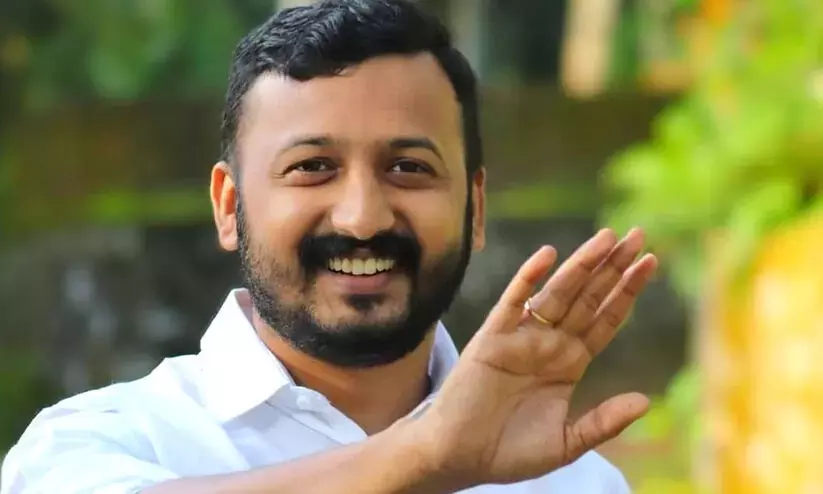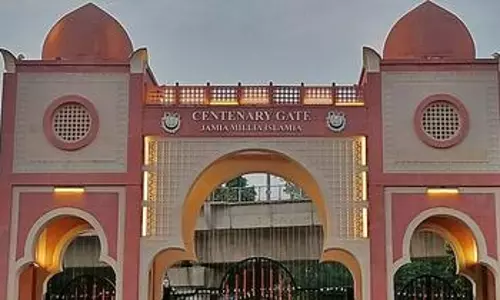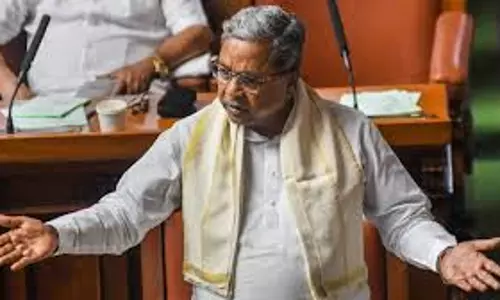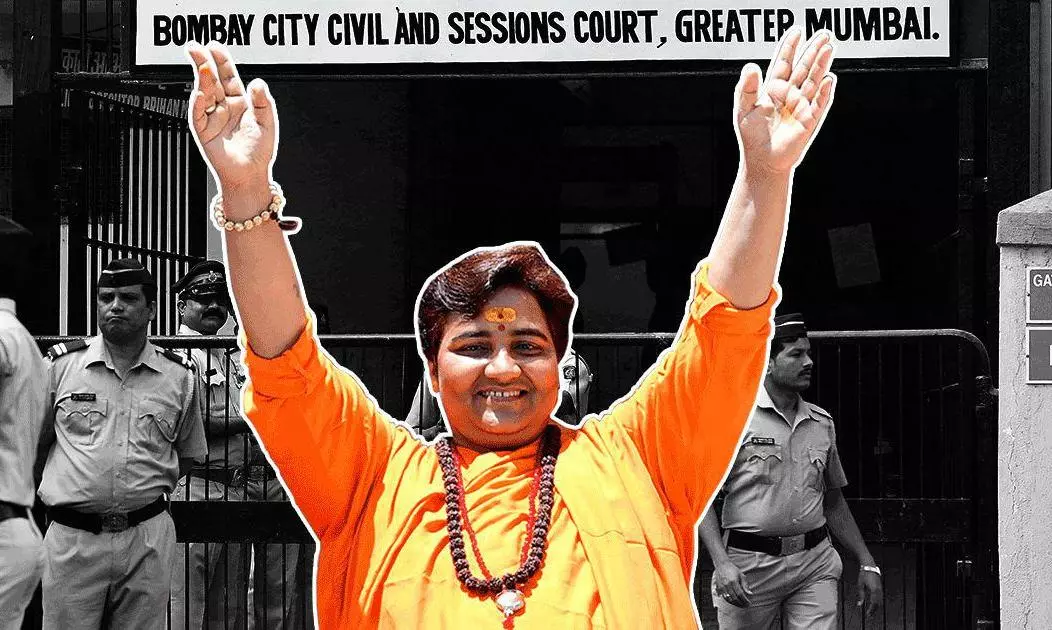
Malegaon blast occurred, but not by alleged ‘Hindu Rashtra’ advocates: NIA court
text_fieldsA special NIA court found the prosecution’s arguments about the involvement of seven right-wing Hindutva members, including former BJP MP Pragya Singh Thakur—accused in the 2008 Malegaon bomb blast case that killed several Muslims—were flawed, as it failed to provide cogent and reliable evidence to establish their guilt beyond reasonable doubt, while acknowledging the occurrence of the blast and the deaths it caused.
The court acquitted all the accused, citing the prosecution’s failure to prove that the motorcycle was used in the blast, and the lack of evidence showing that the RDX used in the IED was procured, stored, or assembled by Lieutenant Colonel Prasad Purohit in Kashmir. This came despite former special public prosecutor Rohini Salian’s disclosure that the NIA had been instructed to go soft on the accused associated with “Hindu terror”, and was deliberately weakening the case.
The blast, which occurred on 29 September 2008 at Bhikku Chowk in Malegaon, claimed several lives and prompted an extensive investigation that initially began with the local police and was later taken over by the Maharashtra Anti-Terrorism Squad (ATS), followed by the National Investigation Agency (NIA).
The NIA dropped several findings of the ATS, which was then headed by Hemant Karkare—who was killed in the Mumbai terror attack on November 26 that same year—whose investigation had focused on the alleged role of serving army intelligence officer Lieutenant Colonel Prasad Purohit in founding Abhinav Bharat, intending to establish a Hindu Rashtra that would have its own constitution, flag, and a government “in exile”, as well as raising funds to carry out terror activities to that end.
The ATS had named twelve individuals as accused and claimed that an IED had been planted on an LML Freedom motorcycle, which they alleged belonged to BJP leader and former MP Pragya Singh Thakur. However, the court found no reliable evidence to show that Thakur had access to the bike at the time of the blast, especially since she had renounced worldly life two years prior.
The case against Thakur and six others—Lieutenant Colonel Prasad Purohit, Major Ramesh Upadhyay (retired), Ajay Rahirkar, Sameer Kulkarni, Sudhakar Chaturvedi, and Sudhakar Dhar Dwivedi—was pursued under various provisions of the Unlawful Activities (Prevention) Act (UAPA), the Explosive Substances Act, and the Indian Penal Code.
Yet, the court concluded that procedural lapses, including defective sanction orders and unauthorised interception of communications, rendered the application of UAPA invalid, while the court further observed that a sanction under Section 197 of the CrPC was unnecessary.
The ATS claimed that several conspiracy meetings were held across various Indian cities, with Thakur’s leadership being highlighted, but many witnesses who initially corroborated this narrative turned hostile during the trial.
A significant number of witnesses either retracted their earlier statements or alleged that confessions had been extracted under duress, while around 30 witnesses died before they could testify.
Although the NIA adopted much of the ATS’s findings when it took over in 2011, it dropped charges under the Maharashtra Control of Organised Crime Act (MCOCA) and found insufficient evidence against several of the original twelve accused, including Thakur, though she was not discharged from the case at that time. The defence later leaned on the NIA’s findings, using them to question the legitimacy of the ATS investigation.
The trial commenced only in 2018, with over 300 witnesses being examined, including a few serving army officers, and around 39 of them eventually turning hostile. Despite claims of torture by the ATS and alleged efforts by the NIA to dilute the case, no perjury charges were sought against the hostile witnesses.


















